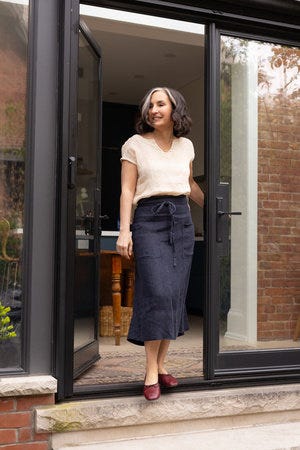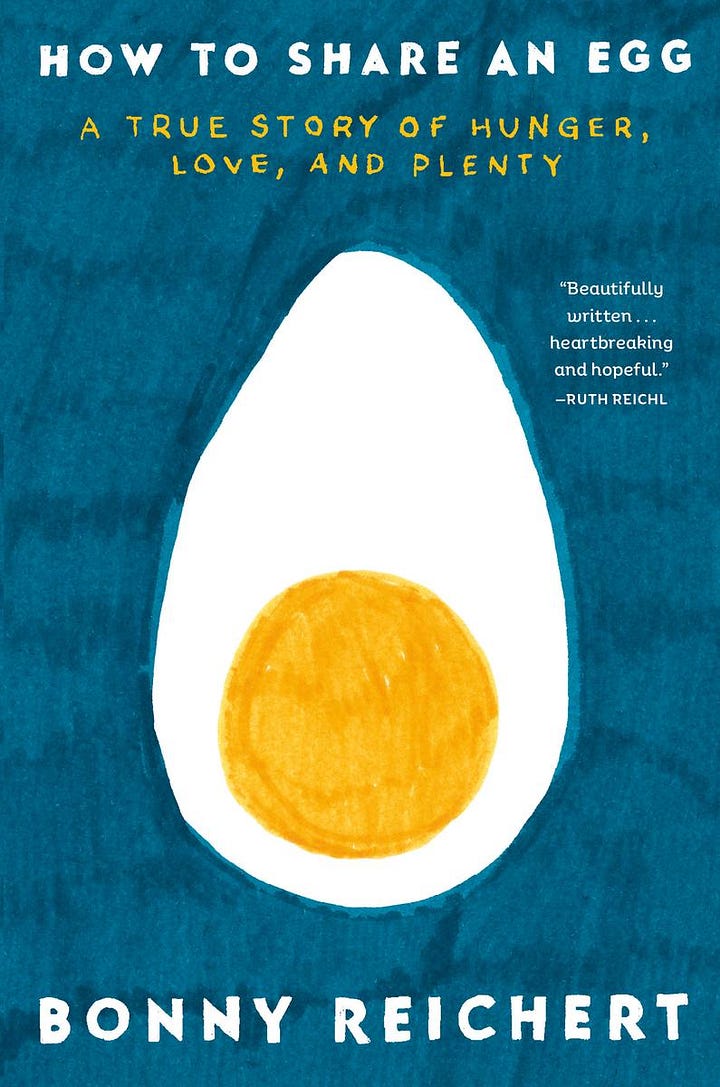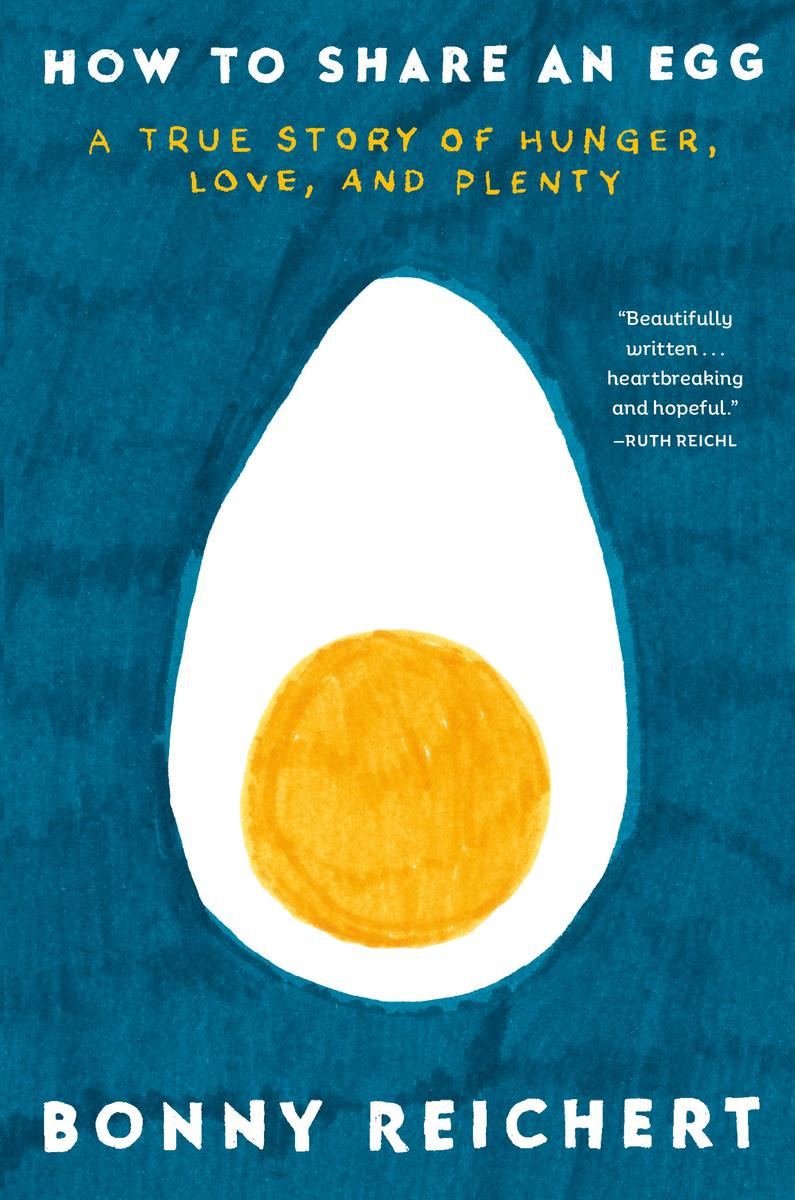Bonny Reichert is a National Magazine Award-winning journalist. She has been an editor at Today’s Parent and Chatelaine, and a columnist and regular contributor to The Globe and Mail. When she turned forty, she had a now-or-never feeling in her bones and quit her job to enroll in culinary school. After that, she began to explore her relationship with food on the page, seeing her childhood in the restaurant business and her background as the daughter of a Holocaust survivor in a new light. Bonny was born in Edmonton, Alberta, and lives in Toronto with her husband and little dog, Bruno. Her three almost-adult children come and go. She holds a master of fine art in creative nonfiction and teaches writing at the University of Toronto’s School of Continuing Studies. How to Share an Egg: A True Story of Hunger, Love and Plenty won the Dave Greber work-in-progress award in 2022, and is a Globe and Mail and Toronto Star bestseller.
My First Book: How to Share an Egg: A True Story of Hunger, Love, and Plenty
A moving culinary memoir about the relationship between food and family—and sustenance and survival—from a chef, award-winning Canadian journalist, and daughter of a Holocaust survivor.
Hardcover: 304 pages
Publisher: Appetite by Random House
Date Published: January 21, 2025
Subjects: Memoirs / Culinary
“A mesmerizing memoir . . . Nimble and nourishing, this is not to be missed.” —Publishers Weekly (starred review)


How did you become a writer?
I have been an editor and journalist for many years. I began my career at Today’s Parent magazine and moved from there to Chatelaine and then, after chef school, I began writing about food almost exclusively. Still, How to Share an Egg represents a seismic shift in genre, and a move from the everyday to the deeply personal.
This is your first book - why did you need to tell this story?
My book is a memoir wrapped around a family story. The story has been inside me since I was a child. The memoir wrapping is my way of coming to terms with the story and telling it in my own way, a way that is unique to me.
Tell us about How To Share an Egg.
I grew up in the shadow of a traumatic family history, and this book is my journey toward discovering who I am, through food. What’s interesting is that my dad almost starved to death during the Holocaust, and it was stepping into the kitchen and becoming a chef that ultimately helped me make peace with that past.
What was your journey from idea to publication?
The book was floating around in my consciousness for decades, but the real work began with a proposal that was strong enough to get me an agent, and an agent who was strong enough to get book deals in both Canada and the US. From there my job was to finish the book, work through three edits and, finally, see it published this past January.
What was your playlist when writing this book (either literally or thematically?)
Oh, great question! I listened to a lot of jazz while writing because I need wordless music to work, so Bill Evans and Miles Davis, for example. But to shake out the cobwebs and get a little more pumped between pages, I listened to everything from Vampire Weekend to the Beatles to Alicia Keys (Girl on Fire).
What do you hope readers will take away after reading How to Share an Egg?
The book is coming out in a much more divided time than when I started it, almost five years ago. And yet, I still believe we are more alike than we are different. So much of what I’ve written is common enough to be nearly universal: being born in the shadow of a dark family history; coping with inherited trauma; searching for sources of strength and glimmers of joy; passing stories along to the next generation. As Canadians, we are a society of immigrants and refugees, people who’ve migrated from one place to another, whether by choice or by force. We are children and grandchildren, parents, aunts and uncles. Food stories run through our bloodlines like rivers through forests, always moving forward, flowing toward the future, curving and changing.
What do you know now that your first book has been published that you wish you knew when you first had the inspiration to write it?
That I’m up to the task. I wish I would have settled down to do it sooner, but there’s no point in looking backwards. I’m looking to the future.
What’s next for you?
I’ve begun ideation on the next book. I can’t wait to delve further and figure out what it’s going to be!




